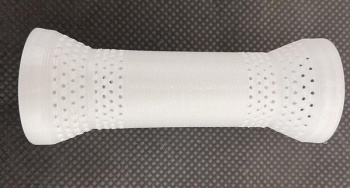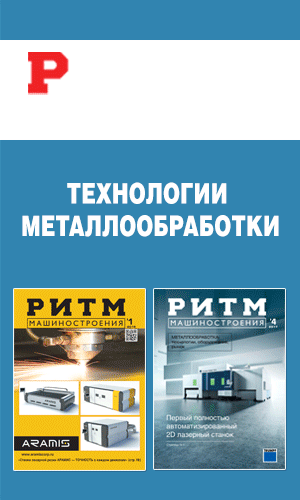
Researchers at the University of South Australia (UniSA) in Adelaide, Australia, have manufactured an esophageal stent which can help treat cancer patients.
Stents are small tubes that are implanted into the body in order to keep passages such as blood vessels or airways open. They are used commonly in cardiovascular medicine to keep blood vessels open when plaque builds up, and angioplasty immediately after a heart attack.
Drug delivering stent (Image credit: UniSA)
They come in metal and plastic varieties depending on need.
In this case, the stent is an oesophagal stent and is printed with a flexible polyurethane filament, and it is infused with chemotherapy drug 5-fluorouracil.
The drug is released slowly over a period of up to 110 days, and can be tailored to fit any patient in terms of size, geometry and the rate at which the drug is delivered, thus offering direct delivery of the drug to the site of the cancer, and reducing the growth of the tumor.
In addition, the plastic is suitable for sterilisation by both UV and gamma radiation, allowing the production of a safe, sterile product for implantation.
“3D printing processes that combine medicines and medical devices are on the precipice of changing the way we deliver medicines,” said Professor Sanjay Garg, Senior researcher and Director of UniSA’s Pharmaceutical Innovation and Development Group.
“We’re now exploring the potential of 3D printing to design precise and individualized drug delivery systems.”
You can see the stent in the image below.
In addition to delivering drugs directly to the location of the cancer, the stent eases the difficulty of swallowing (a condition known as “dysphagia”) which is experienced by oesophagus cancer patients.
“The most prominent symptom in esophageal cancer is dysphagia which is due to malignant cancer cells blocking the oesophagus,” said Paris Fouladian, PhD scholar at UniSA.
“Blockages are commonly eased by an oesophageal stent – a small tube that is placed in the food pipe to keep it open – but these too can become obstructed by invading cancer cells. Our new drug-loaded esophageal stents can help prevent further blockages by administering anti-cancer drugs directly to the tumour, limiting further growth while relieving the pressure of dysphagia.”
This will be good news for patients and doctors alike, as Esophageal cancer is the seventh most common type of cancer, and the sixth highest cause of cancer deaths in the world.
“While more research is needed to further test the new drug-loaded 3D printed stents, we’re hopeful that this new technology will deliver positive outcomes for people with oesophageal cancer.” said Prof. Garg.
Australia seems to be very focused on various stent research avenues, having also printed the world’s first blood vessel stents last year.


